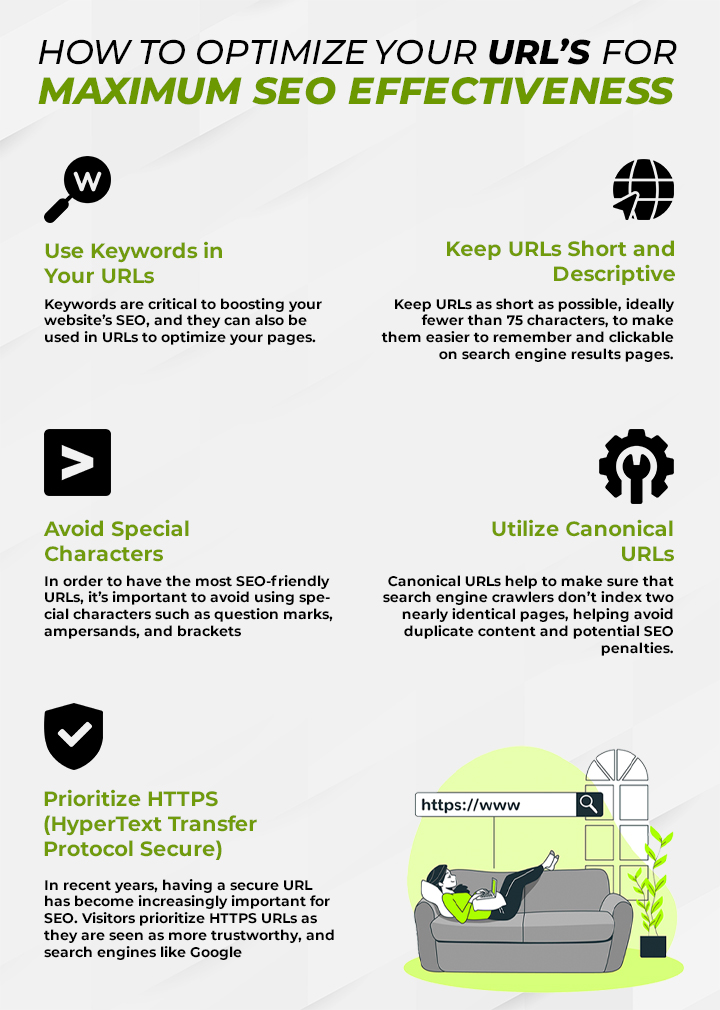URL optimization is critical for maximum organic search visibility and traffic. By making the right changes to your URLs, you can give your website an SEO boost and help maximize your website’s visibility in search engines. Read on for tips on how to optimize URLs for SEO!
Use Keywords in Your URLs
Keywords are critical to boosting your website’s SEO, and they can also be used in URLs to optimize your pages. When using keywords in URL optimization, you should make sure to use only relevant keywords that are directly related to the content on the page. While stuffing keyword phrases may have been an effective SEO tactic years ago, search engines now prefer more descriptive URLs with a few carefully selected keywords – this allows them to accurately determine the relevance of each page without having to constantly guess.

Keep URLs Short and Descriptive
Keep URLs as short as possible, ideally fewer than 75 characters, to make them easier to remember and clickable on search engine results pages. When creating URLs, try to make them descriptive and informative; use words that accurately reflect the content of each page. Additionally, URLs should avoid special characters (e.g. # or @) – names that contain hyphens or underscores are much easier for search engines to read.
Prioritize HTTPS (HyperText Transfer Protocol Secure)
In recent years, having a secure URL has become increasingly important for SEO. Visitors prioritize HTTPS URLs as they are seen as more trustworthy, and search engines like Google use them as a ranking signal when deciding which pages should be placed higher in the SERPs. An HTTPS URL is essentially an encrypted connection between your and its visitors. Making the switch to HTTPS will provide your visitors with an extra layer of security that they can count on.
Avoid Special Characters
In order to have the most SEO-friendly URLs, it’s important to avoid using special characters such as question marks, ampersands, and brackets. Not only do these characters create clutter in the URL, but they can also confuse search engine crawlers and be difficult for visitors to remember. Use hyphens in place of special characters as this is considered more aesthetically pleasing and easier for users to find.
Utilize Canonical URLs
Canonical URLs help to make sure that search engine crawlers don’t index two nearly identical pages, helping avoid duplicate content and potential SEO penalties. This is especially important if you’re using a content management system or blog program that automatically generates alternate versions of your URLs at the same address. To use canonical URLs, simply place a tag in between the tags of both pages with the URL of the original page included as an attribute.


